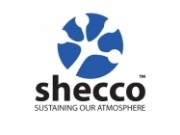Presentations provided at the ‘ATMOsphere America 2012’ conference in Washington DC, 12-13 June 2012, discussed the business case for natural refrigerants in North America. Case studies on CO2 heat pump installations in a winery, a commercial bakery and two dairy/cheese production plants demonstrated concrete energy cost savings. The units are able to cater for both heating and cooling needs and cover a multitude of required temperatures involved in the production processes.
“We will continue to promote natural refrigerants because this is not only a smart engineering choice, it is a smart environmental choice as well, […] and it definitely makes business sense”, said Mark Tomooka, MAYEKAWA USA concluding his presentation.3.5-year payback for heating & cooling system with CO2 heat pump in CA winery
Before these concluding remarks, Mr. Tomooka had discussed the different applications for natural refrigerants CO2, ammonia, hydrocarbons, air and water, and presented results from the integration of a CO2 heating and cooling system in a winery in California, where a CO2 heat pump by MAYEKAWA/MYCOM made its US debut.
Among other elements, the system features an electric-driven hot water heat pump that uses CO2 refrigerant for glycol cooling and hot water heating. The winery required 180°F (about 82°C) supply hot water and the results achieved thanks to the integration of the CO2 heat pump include:
- High hot water supply eliminating the use for harsh chemical treatment in wash down
- Design for off grid capability
- System cost ~1.35 times the cost of conventional refrigeration and boiler equipment
- Three year payback
Simultaneous high temperature hot water and AC for US commercial bakery
Merle G. Rocke, EcoThermics Corporation, together with Darin Massner, of Midwestern commercial bakery Country Maid Inc, presented a case study on the application of a transcritical CO2 heat pump system that simultaneously produces high temperature hot water for washing baking equipment and cool, comfortable air-conditioning for employees. This installation is soon to be operational and the result of a joint effort between the commercial bakery, a Midwestern systems OEM, and EcoThermics Corporation, based in Illinois, that has developed the AT54 CO2 compressor that is sized for the US commercial market.
Thanks to the unique benefits of CO2 in heat pumps to produce hot water from 120°F (about 49°C) to 190°F (about 88°C), well beyond the limits of traditional heat pumps, high temperature hot water consumers can reduce electrical energy to 30% of the traditional consumption. When the system is designed to provide hot water and air-conditioning simultaneously, the combined coefficient of performance (COP) can exceed 5.0, while a very favourable payback of less than 2-3 years is expected. This high level of energy efficiency makes the system economically competitive with low cost natural gas water heating: Energy cost savings of $3,300/year (about €2,500/year) and a payback of 3.5 years. If electricity were used instead of natural gas, savings would be over $8,000/yr (about €6,000/year) and the payback period would be around 1.5 years.
CO2 heat pumps catering for heating & cooling needs at Canadian dairy/cheese plants
Dominic Babineau, Soteck, discussed his experience with two projects integrating CO2 heat pumps in dairy/cheese plants in Quebec, Canada, owned by Fromagerie Polyethnique and Fromagerie Fritz Kaiser respectively.
Fromagerie Polyethnique’s motivation was to reduce energy consumption and be more sustainable. After monitoring energy consumption since 2008, the fromagerie committed in 2012 to improve energy efficiency and reduce waste. In this vein, they installed in 2011 installed a new blast cooler when the CO2 heat pump unit was installed for the cheese plant.
The system design challenge in these projects emanates from the different temperatures required during the dairy/cheese production process. In the first project at Fromagerie Polyethnique, a MAYEKAWA/MYCOM CO2 heat pump provides
- Hot water for washing
- Chilled water for:
- Milk storage
- Crystopia storage ice bank
The use of the CO2 heat pump saves an estimated 105,000 liters of propane fuel per year.
The yearly energy savings estimation from the second project at Fromagerie Fritz Kaiser is even higher, amounting to about 125,000 liters of propane fuel saved per year. However, the comparison of energy consumption before and after the CO2 heat pump was installed is a difficult one, as the project involved expansion of the production capacity. Here the goal of the project was actually to expand from handmade type production to a more industrial one while at the same time reducing operational costs.
Having learnt from the first project, the project at the Fritz Kaiser plant gets more benefit out of the CO2 heat pump unit by covering more heating needs in the building: despite washing water, the heat is also used for pasteurisation and production processes. Again, the CO2 heat pump also caters for the cooling needs of the plant, by chilling water for the maturing room, the milk storage and the crystopia storage ice bank. One of the main benefits of the CO2 heat pump unit and a reason for which it was selected is that it can achieve high temperatures needed during the production process (up to 194°F/90°C), while a standard R410A heat pump unit would not encompass high enough heat rejection. The payback period for the project was estimated at 4-5 years, but thanks to the energy efficiency incentives by the Quebec government the payback period was reduced to two years.
The presenter also noted the public image motivation behind these projects, with the dairy/cheese producers now in a position to say that they produce cheese more efficiently and that they have reduced greenhouse gas emissions.
